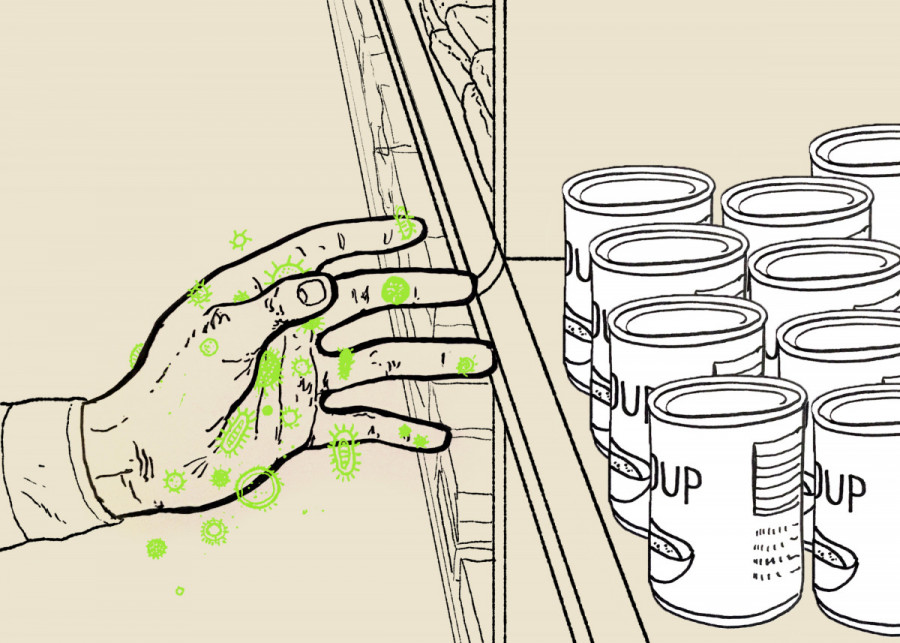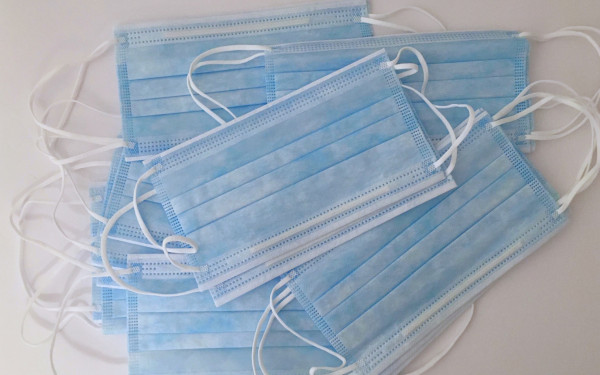Cross-contamination for dummies
A digestible explanation on how to keep yourself and others safe
If you’re a non-science student, like me, you might have only started hearing many medical terms when the pandemic started. I didn’t even know what the difference between an epidemic and a pandemic was.
Now that it’s been months since this all started, I understand a lot more about how this virus works and its ways of transmission, as I’m sure you do too. But, I do think there’s a concept that needs more explaining: cross-contamination.
While it sounds complicated, once you break it down, it’s pretty easy to understand.
To begin this explanation, here’s a quote from Dr. Jerman Chirgwin, who works in the emergency wing at Saint-Mary’s Hospital here in Montreal. He explained cross-contamination in the context of COVID-19 as “the spread of the virus from one surface or object to another. It occurs because people with the virus on their hands touch surfaces where the virus can survive for hours.”
I’m sure we think we understand the situation—nobody goes around touching toilet lids and floors for fun because we know they have germs from other people. However, I don’t think we realize that germs have a wider spread than this.
Let’s say you’re at the supermarket, and somebody who unknowingly has the virus grabs a jug of orange juice, and then they decide they want apple juice instead. Did they spread the virus onto the orange juice bottle? They might be wearing a mask, and they might have disinfected their hands when entering the store, but the moment they touch their eyes, nose, or mouth, they carry the virus on their hands, and when they touch an object, the object then carries the virus on its surface.
When asked about hand-washing habits, nursing student from Champlain College, Mariana Leao Santos said, “hand washing should be a frequent habit at various times of the day, not only when coming in and out of places. It’s important to sanitize them before and after going to the bathroom, after coughing, sneezing, scratching your nose or eyes, after arriving home, after touching places/objects of shared use, such as tables, bus bars and door handles, and before after being with someone that might be sick.”
“Use your common sense. If you think you’ve touched something that might be infected, clean your hands.” —Glisant Plasa
Or as Glisant Plasa, a neuroscience student from McGill, put it, “use your common sense. If you think you’ve touched something that might be infected, clean your hands.”
Ideally, clean your hands with warm soap and water. Why? “Soap and warm water tends to wash away stuff and clean more of the hands than sanitizer which, if applied incorrectly, it can miss spots and also cannot rinse stuff off your hands,” said Chirgwin.
If that’s not available, hand sanitizer will do the job as long as you make sure you’ve sanitized all areas of your hands and you’ve rubbed in the sanitizer for twenty seconds, or until it has dried.
Plasa broke down what sanitizer does: instead of washing the germs off your hands, it will disintegrate their composition and leave them unable to harm you.
Associate biochemistry professor at Concordia, Pat Forgione, explained that the concentration of alcohol in hand sanitizer is essential for the alcohol to do the right job.
“If we could use 100 per cent alcohol, we would, but it’s not nice on the skin and it evaporates too quickly to handle it for ourselves, which is why it’s diluted with water,” he said.
So, when buying sanitizer, we have to make sure it has a 70 per cent alcohol content. He also explained that there is no significant difference between isopropyl and ethanol alcohol; they both do the same job.
“Lysol wipes do the same thing as disinfectants. For objects you buy in stores, wiping them is the way to go to prevent cross-contamination, as for clothes, washing them is the best solution,” said Plasa. “Please, don’t clean your fruits and vegetables with Lysol wipes!”
Now that you understand what cross-contamination is, think about it when you are out. With the general area of Montreal now being on orange alert and the weather getting colder, maybe look for ways to have fun online.




_600_375_90_s_c1.jpg)


